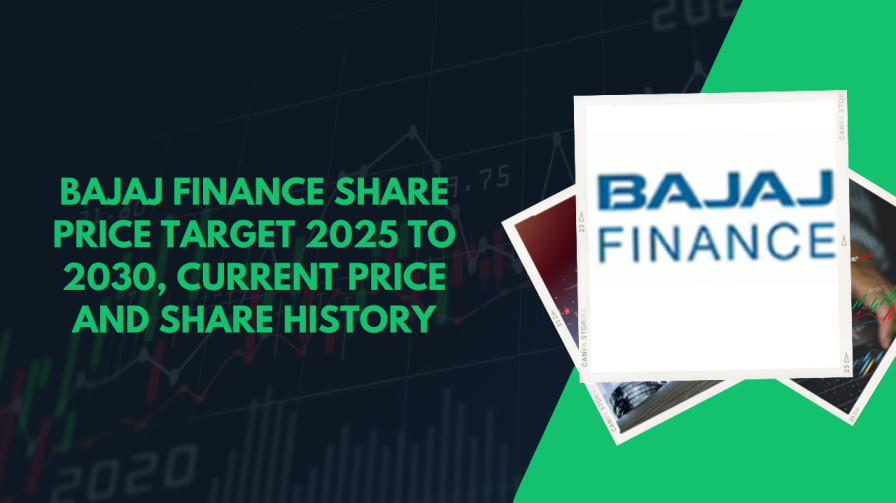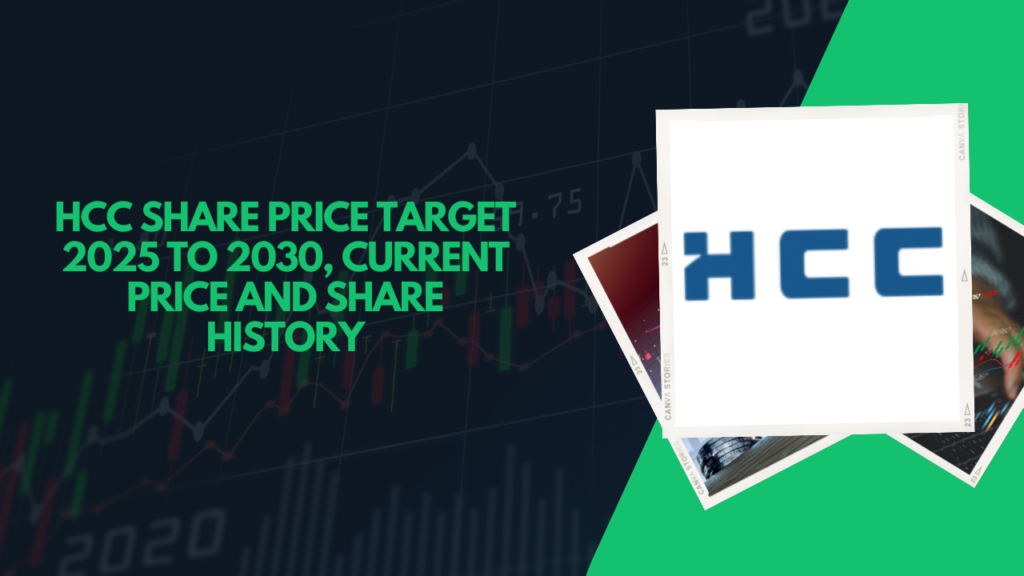Honasa Consumer Share Price Target 2024, 2025 to 2030, Drop 46% in 6 Months: In this article, we will discuss Honasa Consumer’s share target from 2024 to 2030, covering its stock performance, market updates, financial health, performance analysis, shareholding pattern, peer competitors, and other relevant details about Honasa Consumer Ltd.
Honasa Consumer Ltd., the parent company of popular brands like Mamaearth, is a leading player in the personal care and beauty industry. With a focus on sustainability and innovation, the company offers toxin-free and eco-friendly products catering to a wide customer base in India and globally.
Overview of Honasa Consumer Ltd
What is Honasa Consumer Ltd?
Honasa Consumer Ltd. is a prominent Indian company known for its innovative and toxin-free personal care and beauty products. As the parent company of brands like Mamaearth, it has established a strong foothold in the industry with its focus on sustainability and eco-friendly offerings. The company caters to a wide range of needs, including skincare, haircare, baby care, and cosmetics, appealing to diverse consumer segments in India and abroad.
With its headquarters in India and a workforce of 842 employees as of 2024, Honasa Consumer has rapidly grown into a trusted name in the personal care sector. The company is listed on both the Bombay Stock Exchange (BSE) and the National Stock Exchange (NSE), enhancing its visibility among investors and stakeholders.
Key Features of Honasa Consumer Ltd:
- Innovative Personal Care Products: Specializes in toxin-free skincare, haircare, baby care, and makeup products.
- Sustainability Focus: Dedicated to eco-friendly and sustainable practices in its operations.
- Digital-First Strategy: Leverages digital platforms to reach and engage a vast customer base.
- Global Expansion: While primarily serving Indian markets, the company is making strides in international territories.
- Subsidiaries: Operates multiple subsidiaries, broadening its market reach and expertise.
Information about Honasa Consumer Ltd:
| Information | Details |
|---|---|
| Website | Honasa.in |
| Headquarters | India |
| Founded | 2016 |
| Founders | Varun Alagh, Ghazal Alagh |
| Number of Employees | 842 (2024) |
| Subsidiaries | Bhabani Blunt Hair Dressing Private Limited, Dr. Sheth’s Skin and Hair Clinics LLP, Just4kids Services Pvt Limited |
| BSE Symbol | 544014 |
| NSE Symbol | HONASA |
Current Market Position of Honasa Consumer Ltd Share
As of November 2024, Honasa Consumer’s share has exhibited a mixed performance. It is up by +0.94% today but has declined sharply by -23.68% over the past week. Over the past month, the share has dropped significantly by -43.27%, with a further decline of -51.59% over the last three months. On a yearly basis, Honasa Consumer’s share has fallen by -52.25%, with no data available for three-year or five-year performance due to its relatively recent market entry.

Honasa Consumer Share Fundamental Data
- Market Cap: ₹7,385 Cr.
- Current Price: ₹227
- High / Low: ₹547 / ₹222
- Stock P/E: 97.8
- Book Value: ₹35.5
- Dividend Yield: 0.00%
- ROCE: 17.1%
- ROE: Not Available
- Face Value: ₹10.0
Market Position of Honasa Consumer Share as of November 2024
| Time Period | Returns of Honasa Consumer Share |
|---|---|
| 1 Day | 0.94% |
| 1 Week | -23.68% |
| 1 Month | -43.27% |
| 3 Months | -51.59% |
| 1 Year | -52.25% |
| 3 Years | N.A. |
| 5 Years | N.A. |
Honasa Consumer Share Price Target for 2024, 2025, 2026, 2027, 2028, 2029, 2030
Honasa Consumer Share Price Target in 2024
In 2024, the share price target for Honasa Consumer is expected to range between ₹250 and ₹300, reflecting potential recovery as the company focuses on expanding its toxin-free product lines and capitalizing on the growing consumer demand.
| Year | Minimum Target | Maximum Target |
|---|---|---|
| 2024 | ₹250 | ₹300 |
Honasa Consumer Share Price Target in 2025
For 2025, Honasa Consumer’s share price target is projected to range between ₹350 and ₹400. This growth is likely to be driven by the company’s increasing market share and strong consumer base.
| Year | Minimum Target | Maximum Target |
|---|---|---|
| 2025 | ₹350 | ₹400 |
Honasa Consumer Share Price Target in 2026
In 2026, the share price target for Honasa Consumer is anticipated to range between ₹420 and ₹480. The company’s expansion in the beauty and personal care segments will help drive this growth.
| Year | Minimum Target | Maximum Target |
|---|---|---|
| 2026 | ₹420 | ₹480 |
Honasa Consumer Share Price Target in 2027
By 2027, Honasa Consumer’s share price target is projected to range between ₹500 and ₹600, as the company continues to capitalize on its expanding product portfolio and brand reputation.
| Year | Minimum Target | Maximum Target |
|---|---|---|
| 2027 | ₹500 | ₹600 |
Honasa Consumer Share Price Target in 2028
In 2028, the share price target for Honasa Consumer is estimated to range between ₹650 and ₹750, supported by robust consumer demand and a stronger market presence.
| Year | Minimum Target | Maximum Target |
|---|---|---|
| 2028 | ₹650 | ₹750 |
Honasa Consumer Share Price Target in 2029
For 2029, the share price target for Honasa Consumer is expected to range between ₹800 and ₹900, driven by consistent product innovation and an expanding global market.
| Year | Minimum Target | Maximum Target |
|---|---|---|
| 2029 | ₹800 | ₹900 |
Honasa Consumer Share Price Target in 2030
By 2030, Honasa Consumer’s share price target is projected to range between ₹1,000 and ₹1,200, reflecting its strong market leadership in the personal care and wellness segments.
| Year | Minimum Target | Maximum Target |
|---|---|---|
| 2030 | ₹1,000 | ₹1,200 |
Financial Health and Performance Analysis of Honasa Consumer Ltd (FY 2023 – FY 2024)
Honasa Consumer Financials Income (P&L) (FY 2023 – FY 2024)
FY 2024
| Metric | FY 2024 | Y/Y Growth |
|---|---|---|
| Total Revenue | ₹1,969.61 Cr | +29.98% |
| Total Expenses | ₹1,822.48 Cr | +21.37% |
| Profit after Tax (PAT) | ₹111.78 Cr | – |
| Operating Profit Margin | 8.13% | – |
| Net Profit Margin | 5.82% | – |
| Basic EPS (₹) | ₹3.57 | – |
FY 2023
| Metric | FY 2023 | Y/Y Growth |
|---|---|---|
| Total Revenue | ₹1,515.27 Cr | +57.13% |
| Total Expenses | ₹1,501.61 Cr | +59.42% |
| Profit after Tax (PAT) | ₹-142.81 Cr | -1,008.74% |
| Operating Profit Margin | 1.36% | – |
| Net Profit Margin | -9.56% | – |
| Basic EPS (₹) | ₹-4.66 | – |
Analysis Summary
- Revenue Growth: Honasa Consumer experienced robust revenue growth in FY 2024 (+29.98%), although lower than the previous year’s growth of 57.13%. This growth reflects the company’s expanding market presence and consumer demand.
- Expense Management: The company controlled expenses more effectively in FY 2024 with an increase of 21.37%, which is lower than the previous year’s expense growth of 59.42%. This indicates better cost management.
- Profitability: While the company posted a positive Profit After Tax (PAT) of ₹111.78 Cr in FY 2024, it had a loss of ₹-142.81 Cr in FY 2023, a dramatic reversal. The improvement is driven by better operational efficiency and cost control.
- Margins: Operating Profit Margin (OPM) saw significant improvement from 1.36% in FY 2023 to 8.13% in FY 2024, reflecting a better ability to generate profits from core operations. Net Profit Margin (NPM) also moved from -9.56% to 5.82%, signaling a positive shift in the company’s profitability.
- Earnings Per Share (EPS): EPS turned positive at ₹3.57 in FY 2024, reversing from a negative ₹-4.66 in FY 2023, indicating strong shareholder value creation.
How to Buy Honasa Consumer Ltd Shares
- Choose a Broker: Select a brokerage platform that offers Honasa Consumer Ltd shares for trading.
- Open a Trading Account: Set up a Demat and trading account with your chosen broker.
- Complete KYC: Provide identity and address verification documents to complete the KYC process.
- Deposit Funds: Add funds to your trading account to enable share purchases.
- Search for Honasa Consumer Ltd Shares: Look up the shares by the company name or ticker symbol.
- Place an Order: Choose the quantity of shares to buy and place a market or limit order.
- Confirm Purchase: Review the transaction details and confirm your order.
Honasa Consumer Share Price Target for the Next 5 Years:
Honasa Consumer, known for its focus on toxin-free and natural product lines, is well-positioned for growth as it taps into expanding consumer trends and demand across various sectors. Below are the projected share price targets for Honasa Consumer for the next five years:
| Year | Minimum Target (₹) | Maximum Target (₹) |
|---|---|---|
| 2024 | ₹250 | ₹300 |
| 2025 | ₹350 | ₹400 |
| 2026 | ₹420 | ₹480 |
| 2027 | ₹500 | ₹600 |
| 2028 | ₹650 | ₹750 |
Shareholding Pattern of Honasa Consumer
Promoters:
- No. of Shares: 11,36,16,550
- Percentage: 34.98%
- % Change QoQ: -0.09%
Pledge:
- No. of Shares: 0
- Percentage: 0.00%
- % Change QoQ: 0.00%
FII (Foreign Institutional Investors):
- No. of Shares: 6,27,52,762
- Percentage: 19.31%
- % Change QoQ: +5.35%
DII (Domestic Institutional Investors):
- No. of Shares: 5,67,44,063
- Percentage: 17.47%
- % Change QoQ: +0.11%
MF (Mutual Funds):
- No. of Shares: 1,25,85,929
- Percentage: 3.87%
- % Change QoQ: +0.31%
Others:
- No. of Shares: 9,17,10,631
- Percentage: 28.24%
- % Change QoQ: -5.37%
Pros and Cons of Honasa Consumer Shareholding
Pros:
- Strong Promoter Stake: The promoters hold 34.98% of the shares, indicating a significant level of control and commitment to the company. Despite a minor QoQ reduction of -0.09%, the stake remains substantial.
- Minimal Pledged Shares: With no shares pledged, Honasa Consumer maintains a clean balance sheet with no financial encumbrances, suggesting a low risk for investors.
- FII Growth: Foreign institutional investor (FII) holdings have increased by 5.35%, reflecting growing confidence from foreign investors in the company’s prospects.
Cons:
- High “Others” Stake: The “Others” category holds 28.24% of the shares, with a notable QoQ decrease of -5.37%. This high retail or non-institutional investor stake could result in increased market volatility.
- Moderate DII and MF Holdings: While domestic institutional investors (DII) and mutual funds (MF) have seen slight increases in their holdings, the growth is minimal (0.11% and 0.31%, respectively), indicating moderate institutional interest.
Peer Competitors of Honasa Consumer in the Trading Industry
| Name | Share Price (₹) | Market Cap (₹ Cr) |
|---|---|---|
| Adani Enterprises | 2257.50 | 260363.48 |
| Aegis Logistics | 847.40 | 29749.32 |
| Cello World | 751.00 | 16586.23 |
| Redington | 191.23 | 14949.11 |
| MMTC | 76.42 | 11475.34 |
| Arvind Fashions | 571.80 | 7615.74 |
| PDS | 526.15 | 7434.40 |
| Honasa Consumer | 226.90 | 7385.05 |
FAQ
1. What are share price targets?
Share price targets are predictions about where a company’s stock price will likely reach within a certain period, usually based on analysts’ assessments. These targets are influenced by factors such as company performance, market trends, and industry conditions.
2. How are share price targets calculated?
Analysts use several methods to calculate share price targets, including technical analysis (based on historical price data) and fundamental analysis (which looks at the company’s financial health, growth prospects, and market conditions). They also consider future growth, earnings, and industry outlook when setting these targets.
3. Can share price targets change?
Yes, share price targets can change as new information becomes available. Quarterly earnings reports, significant business developments, or changes in market conditions may cause analysts to adjust their targets.
4. Are share price targets guaranteed?
No, share price targets are not guaranteed. They are estimates based on current data and assumptions. Market conditions and unforeseen events can cause actual prices to deviate from the projected targets.
5. What does the “minimum” and “maximum” share price target mean?
The “minimum” target is the lowest price analysts expect the stock to reach, while the “maximum” target is the highest price anticipated. The range provides an estimate of how the stock could move over time, considering various factors that may affect the company’s performance.
1. What is a shareholding pattern?
A shareholding pattern is the distribution of a company’s shares among its various stakeholders. It provides information about the ownership of the company, categorizing shares held by promoters, institutional investors, and the public.
2. What does “Promoter Stake” mean in shareholding?
Promoter stake refers to the percentage of shares held by the promoters, typically the founders or key management personnel of the company. A higher promoter stake usually suggests more control over the company, which can be seen as a positive sign of stability.
3. Why is the “Pledge” percentage important in shareholding?
The pledge percentage represents the portion of shares pledged by the promoters or major stakeholders as collateral for loans. A high pledge percentage could be a red flag, indicating financial strain or risks if the company struggles to repay the debt.
4. How does Foreign Institutional Investor (FII) ownership affect a company?
FII ownership refers to shares held by foreign investors and institutions. A higher FII stake often signals international confidence in the company’s growth prospects. Low FII ownership might indicate limited foreign interest in the company, which could affect liquidity and investor sentiment.
5. What does the “Others” category in shareholding represent?
The “Others” category typically includes shares held by retail investors, small stakeholders, or non-institutional entities. A large percentage in this category may suggest a high level of retail investor interest, which can sometimes lead to increased market volatility due to fluctuating investor sentiment.
6. What does the percentage change in shareholding mean?
The percentage change indicates how the ownership in a specific category (promoters, FIIs, DIIs, etc.) has increased or decreased compared to the previous quarter. Positive changes can indicate increased investor confidence, while negative changes may suggest a shift in sentiment or strategy.
7. How does a company’s shareholding pattern impact stock performance?
A company’s shareholding pattern can affect stock performance. For example, a high promoter stake indicates strong control and potential stability, while a large retail investor base may introduce volatility. Additionally, institutional investors, such as mutual funds and FIIs, may signal greater market credibility, often impacting investor perceptions and stock movement.







Pingback: BSE Ltd Share Price Target 2024, 2025 to 2030, Technical Analysis & Share Market Updates